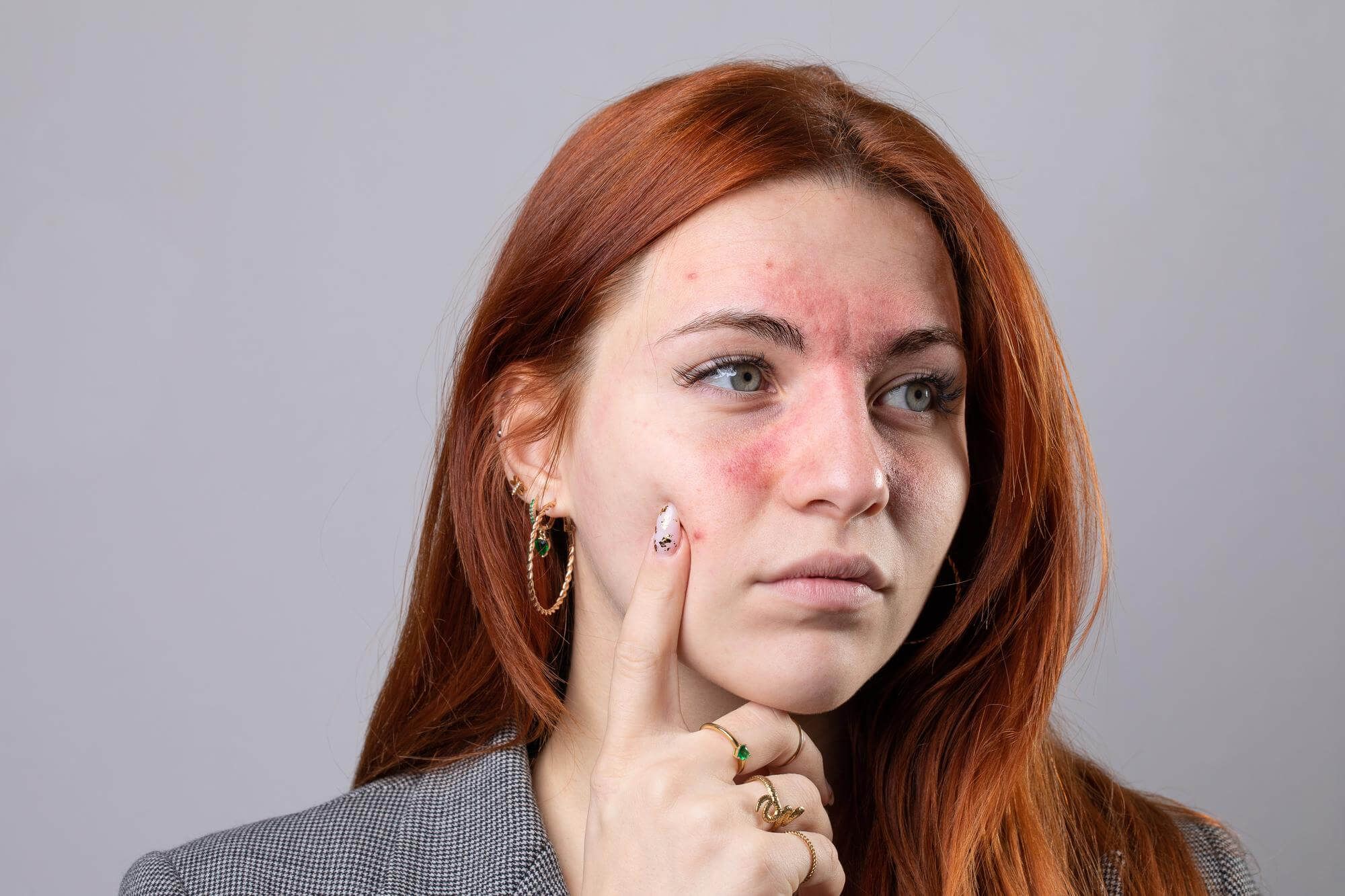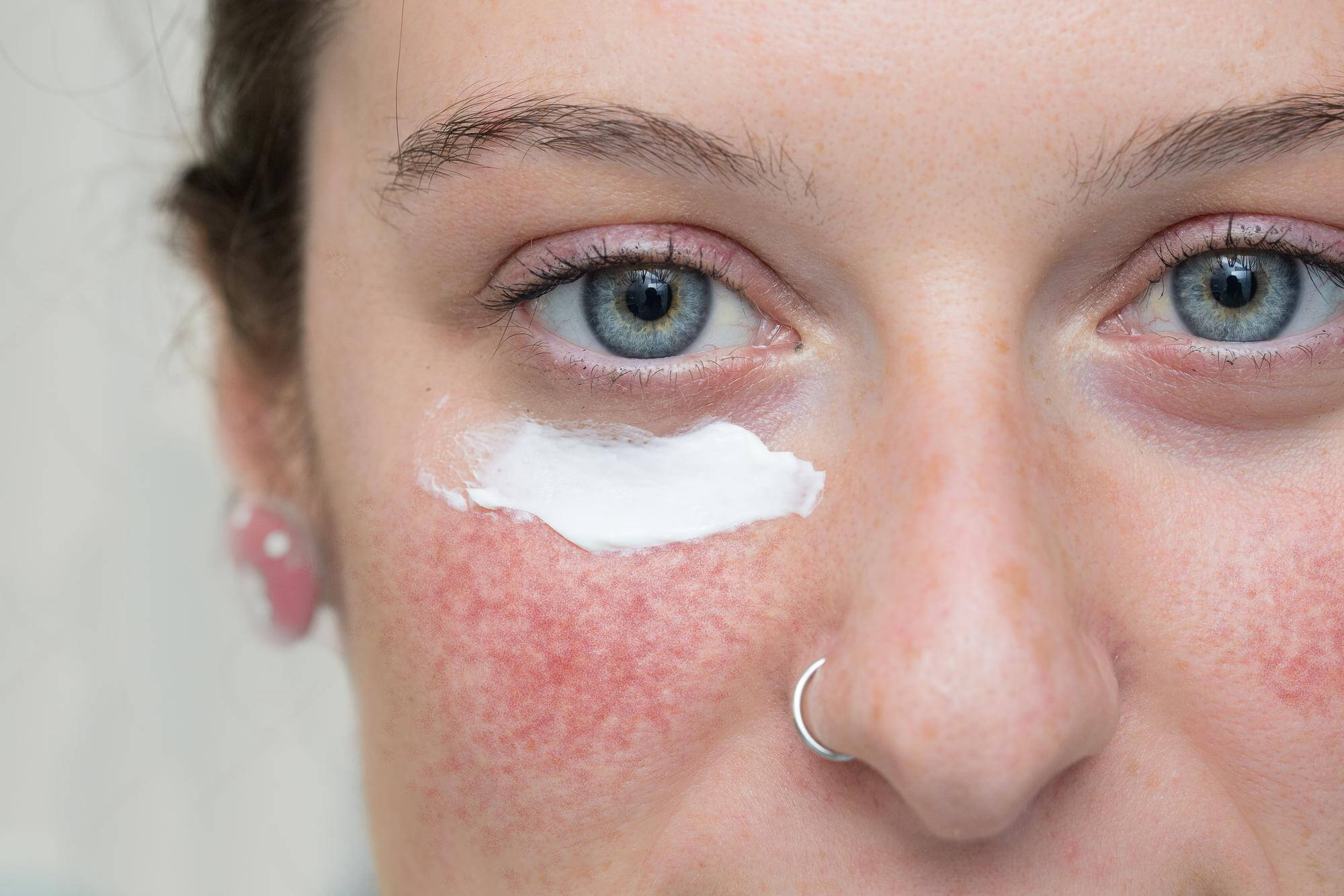Eczema on the face: care tips and treatment


Irina Makarova
Eczema on the face is a common dermatological condition that causes skin inflammation accompanied by itching, redness and swelling. Knowing the symptoms, causes and treatment of eczema helps you to see a doctor on time and minimizes the consequences of the disease.
What is facial eczema?
Facial eczema is an inflammatory disease characterized by a recurrent course and a variety of clinical manifestations.
Types of facial eczema
There are several types of eczema on the face: atopic, contact, seborrheic, microbial and dyshidrotic. Appearance and treatment may vary depending on the type.
Symptoms of facial eczema
The main symptoms of eczema on the face include red, itchy rashes, sometimes with moist areas. With a prolonged course, small cracks and crusts may appear on the skin.
Causes of facial eczema

- Genetics play a significant role in the development of eczema. If one parent suffers from the disease, the risk for the child is increased.
- The environment can also contribute to the development of eczema on the face. It can be caused by irritants such as dust, flowering plants, or chemicals.
- Food allergies can also provoke eczema. Certain foods, such as milk, eggs, and fish, can cause a reaction in people with a predisposition.
- Stress and emotional overload can also cause or exacerbate eczema symptoms.
Diagnosis of facial eczema
Diagnosis of facial eczema includes a visual examination of the skin as well as a history. In some cases, a blood test or skin biopsy may be required.
Treatment of facial eczema

Local treatment includes the use of ointments to treat facial eczema. These medications, such as hydrocortisone or tacticrolimus, help reduce inflammation and itching.
Anti-inflammatory drugs such as Ibuprofen or Naproxen can relieve more serious symptoms.
Immunomodulators, such as "Cyclosporine," can be used when the disease does not respond to other treatments.
Lifestyle changes
Lifestyle changes, including a healthy diet, regular exercise and stress management, also play a key role in treating eczema.
Skin care for facial eczema
Eczema requires good skin care: avoid harsh products, use moisturizers and protect your skin from the sun.
Preventing eczema on the face
Preventing eczema includes avoiding known irritants, keeping your skin moisturized and living a healthy lifestyle.
In conclusion, facial eczema is a serious condition that requires a timely and competent approach to treatment. Remember, it is important to see an allergist at the first signs of the condition. Only a specialist can determine the type of eczema, prescribe effective treatment and give recommendations on skin care.
Related Materials
New materials
Popular Articles
We recommend reading
Contact us in the Contact Us section to ask questions, offer ideas, or for more information about our allergy resource.
Our articles are your trusted source of allergy knowledge. Learn how to make life with allergic reactions easier on our specialized portal.
©
Lechenie-Allergii.com. All rights reserved.
© Lechenie-Allergii.com. All rights reserved.
The information on this site is for informational purposes only and is not a substitute for professional medical advice. We recommend consulting with qualified medical professionals for accurate information and advice.
 English
English  Українська
Українська  Русский
Русский 









